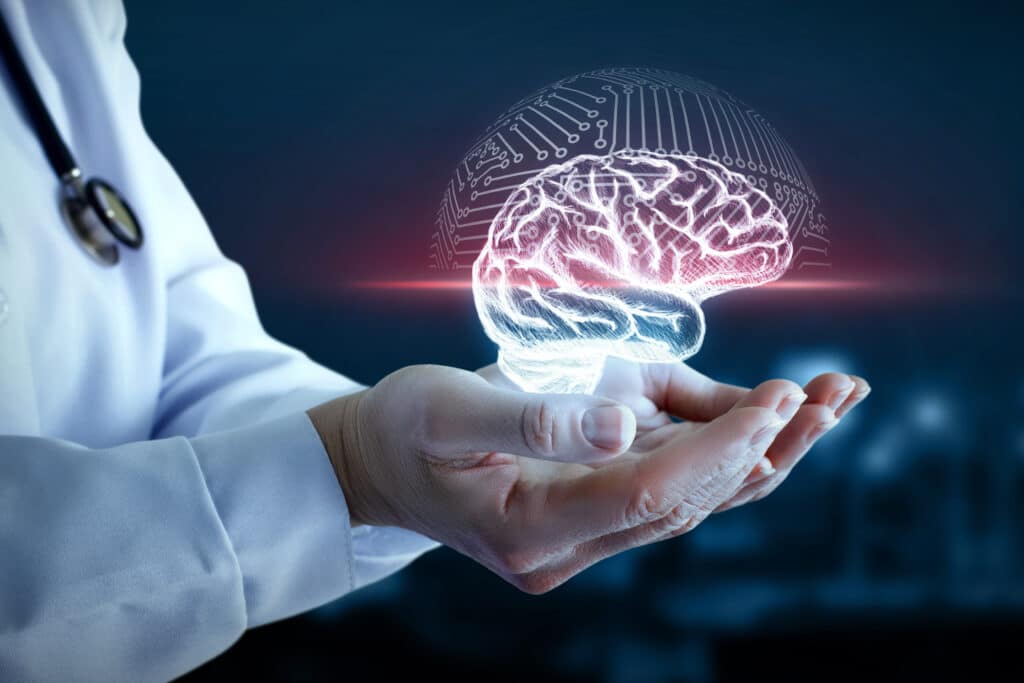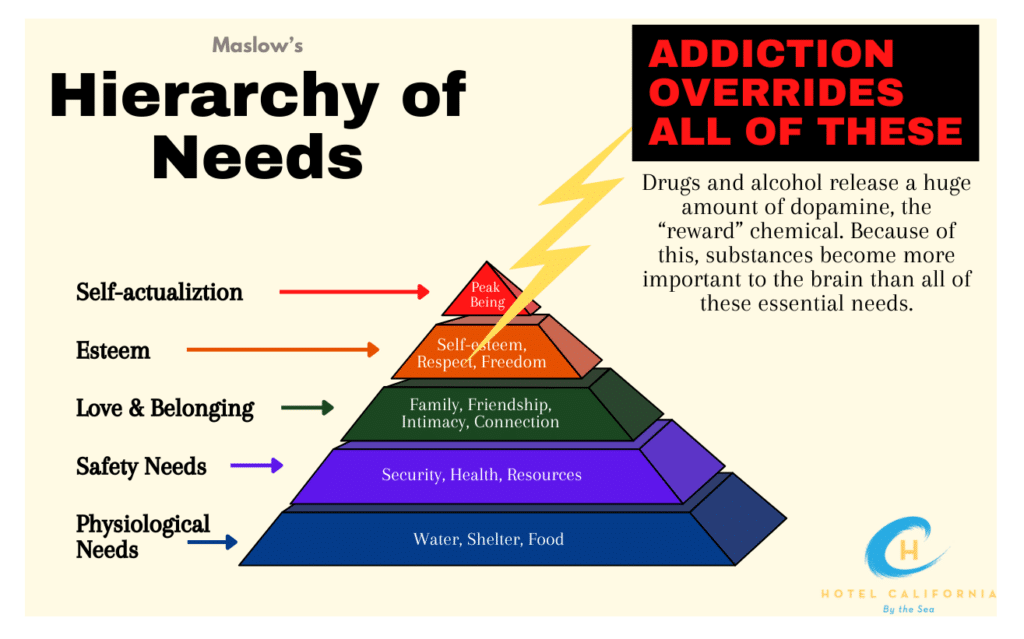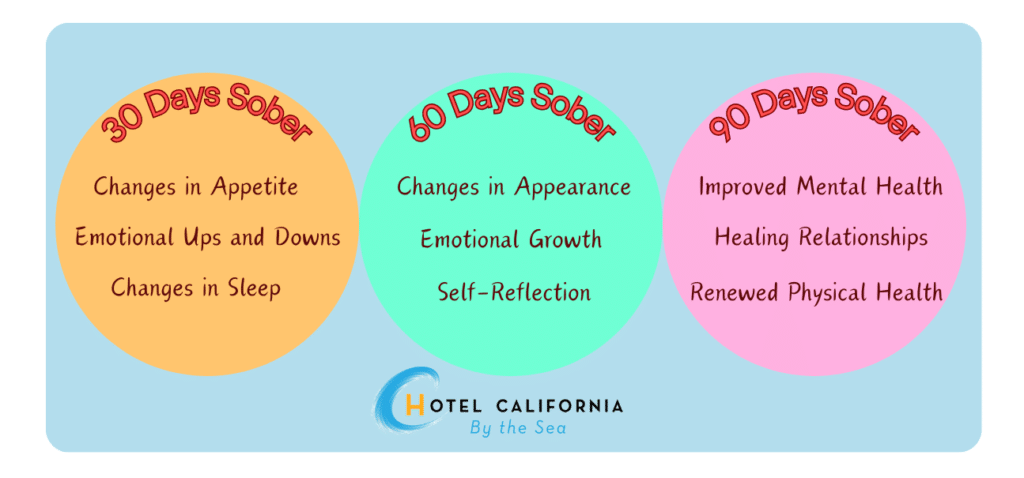How long does it take to rewire the Brain from Addiction?
Addiction is a disease of the brain. It can be triggered by genetics, environmental or social factors. Similar to other medical diseases, it is preventable, it is treatable, it changes in biology and if left untreated, it can last for a lifetime. According to the National Institute of Health, about 4% of US citizens suffer from a drug use disorder. This equates to over 23 million Americans experiencing some sort of problematic drug use. The Surgeon General’s Report on Alcohol, Drugs, and Health states that repeated use of addictive substances, can cause changes in the brain circuits that govern pleasure, reward, learning, stress, decision making and self-control.

How do drugs affect your brain? It can physically change the brain’s structure and chemistry, which leads to changes in the way the brain works. It can affect functions of your brain such as impulse control, emotional control, memory control, flexible thinking and overall mental health. Substance addiction can produce neurotoxic effects on the brain that researchers have found can be reversed to a certain extent. Through medication management and cognitive therapies, data has proven that treatment can help those suffering from substance addiction and even reverse the damage to the brain’s pre-addiction state.
The nature of the Brain
The brain is a fragile but durable organ. The brain and body are designed to be able to heal themselves. The brain is the powerhouse of our body. It tells us what to do, how to do it and why to do things. It is in charge of all the functions of our body, physical and psychological. Our brains can develop an addiction as well as develop withdrawal symptoms as they readjust to a new environment without drugs.
This is a trait called neuroplasticity and it highlights our brain’s ability to change behaviors, thoughts and learning. Neuroplasticity is the process in which the brain continues to function even when cell damage disrupts neuro pathways. For example, it allows you to learn to write with your left hand if your right-hand gets injured or damaged. This lets us adapt and learn new skills and habits to meet the needs of our changing physical and psychological environment.
Over time the brain can continue building and producing cells and neuro pathways throughout a person’s life that allows for adaptability and change. This is called brain cell regeneration. Our brain cells can recreate themselves. Over time, damaged cells from substance abuse will be able to regenerate into new healthy cells.
Our brains also have the ability to share brain functionality. This means brain functions happen in multiple areas of the brain and not just in one area. For example, if drugs have damaged the original center of memory, cognitive and sensory perception, you are able to use other parts of the brain to remember and think logically.

How do drugs impact our Brain?
Drugs, alcohol and other mind-altering substances of misuse work by triggering the release of pleasure hormones. Of course, our bodies produce these chemicals naturally. However, drugs activate the brain and body to produce them unnaturally. It provides shortcuts to the brain’s reward system by flooding the body with these “feel good” chemicals. Addictive substances can produce twice the amount of dopamine that the body can produce naturally. Over time, the body begins adapting to these changes of flooded chemicals and begins to develop tolerance and dependency in order to function normally. This is where drug cravings are created.
Ultimately, drugs, alcohol and other mind-altering addictive substances interfere with the way neurons send, receive and process signals from neurotransmitters. These chemical messengers are involved in many daily aspects of life such as reducing appetite, motivation, stress, memory and learning. Some drugs can imitate the brain’s natural chemical messengers. However, they do not activate the neuron in the same way natural neurotransmitters do. This leads to abnormal messages being sent throughout the body.
In other cases, the drug over-stimulates the brain’s reward system to trick it into prematurely sending out the chemical messengers.
Although drugs and addiction can affect all areas of the brain, there are three main areas where it has the most significant impact.
- Basal ganglia – This area of the brain plays an important role in producing and processing positive forms of motivation. This includes pleasurable effects from health activities such as eating, socializing and sex. It is also involved in the formation of habits and routines and is part of the brain’s reward circuit.
- Extended amygdala – This area of the brain affects how we process stress, anxiety, irritability, and fear. It gives us the ability to avoid pain and seek pleasure.
- The prefrontal cortex – This area of the brain affects the ability for a person to think, plan, problem solve, make decisions and develop self-control over impulses. This part of the brain is also the last part to mature, making young people especially vulnerable to the influence of drugs and alcohol.
Research has now found that after substance abuse, the brain has the ability to heal. In fact, it can unlearn behaviors that lead to addiction. The neuroplasticity and its flexibility in adapting to new situations, allow the brain to repair itself after damage inflicted by drugs, alcohol and substances.

How long to rewire the Brain from Addiction?
How long can it take to rewire the brain from addiction? The extent of the brain’s ability to return to normal or return to its pre-addiction status, after long-term use of drugs and alcohol is still not fully understood. There is still very limited research on the brain’s ability to heal and rewire after addiction. However, researchers are optimistic and finding positive results in current trials.
This means a specific timeline for treatment and healing can vary and is dependent on each person. Brain recovery is dependent on factors such as substance abuse severity, duration of use, how much was regularly used, the overall state of medical health, damage to the brain structure, co-occurring mental health conditions, previous attempts at treatment and a support system.
Despite limited data on brain healing from the effects of substance use disorder, a few tools are being utilized in research on brain recovery. Functional brain measurement techniques provide physiological information about brain function and activity. This includes functional magnetic renaissance imaging (fMRI), electroencephalography (EEG), functional near-infrared spectroscopy (fNIRS), and positron emission tomography (PET).
Another method of research uses structural brain measurement techniques. The method focuses on imaging that allows for examining the brain’s anatomical structure. Examples of these techniques include magnetic resonance imaging (MRI and diffusion tensor imaging (DTI).
The FDA has approved recovery treatments that include medications and behavioral health therapies. Medications such as acamprosate, naltrexone and disulfiram are common medications used in treating symptoms of various substance use disorders. Cognitive behavioral therapy, dialectical behavior therapy and EMDR therapy are evidence proven psycho therapies used to help treat and manage the development of co-occurring mental health conditions that often accompany a substance or alcohol addiction. This combination of treatments has been proven to help readjust the brain during recovery from a long-term addiction.
Check Your Insurance Coverage for FREE
Find out if your insurance covers addiction treatment in minutes. We accept most insurance!
Other ways to help you Brain recover from Addiction
- Staying clean and going into treatment and recovery – During recovery, detox is one of the most difficult phases in treatment. Physically removing any and all traces of drugs from your body will help restore balance to the brain and its normal functioning process. At the beginning of this phase, it’s normal for the brain to be thrown out of balance after using drugs for so long. Users will begin to experience withdrawal symptoms. However, with the help of medical and clinical addiction specialists, the users will be able to rebalance and readjust signifying the process of healing.
- Regular exercise – Keeping your body active physically can naturally produce “feel good” chemicals and help naturally balance your brain.
- Mindfulness and meditation – Studies have shown that mindfulness and meditation can help refocus your mind and increase connections between different areas of the brain. This can also lessen the risk and cravings for drugs.
- Keeping your mind busy – Learning new things, taking up a new hobby or doing something that can be mentally challenging provides a sense of mental exercise as well as a distraction.
- Balanced and nutritious diet – Some foods such as broccoli, berries, garbanzo beans, nuts and seeds and celery are helpful in boosting nutrition and help to rebalance the brain.
- Regular sleep
Reach out to Hotel California by the Sea
We specialize in treating addiction and other co-occurring disorders, such as PTSD. Our Admissions specialists are available to walk you through the best options for treating your addiction.
Treatment for Drug and Alcohol Use Disorder
At Hotel California by the Sea, we offer rigorous alcohol use disorder and substance use disorder treatment programs. Drug and alcohol addiction is a disease of the brain and can greatly affect brain chemistry and function. Despite damages done to the brain after long-term abuse, it is possible for it to heal. Through medication treatment and cognitive behavioral therapies, you can begin to heal your brain from the damage of drugs.
We provided all levels of care from detox, residential, PHP and IOP treatments. Unique treatment therapies such as CBT, DBT and EMDR therapy also provide effective cognitive healing. Our behavioral health treatment program provides the tools and resources for clients to overcome their addiction and begin to heal their brains from the damage of substance abuse and co-occurring mental health disorders.
References:
https://adf.org.au/insights/brain-recovery-after-aod/
https://nida.nih.gov/publications/drugs-brains-behavior-science-addiction/treatment-recovery
https://metaaddictiontreatment.com/how-to-repair-your-brain-after-drug-use/
https://www.health.harvard.edu/blog/brain-plasticity-in-drug-addiction-burden-and-benefit-2020062620479
https://www.intoactionrecovery.com/how-to-heal-the-brain-after-drug-use/
https://www.addictioncenter.com/addiction/addiction-brain/
https://www.cornerstonesocal.com/blog/how-long-does-it-take-the-brain-to-recover-from-addiction/
https://www.recoveryanswers.org/recovery-101/brain-in-recovery/
